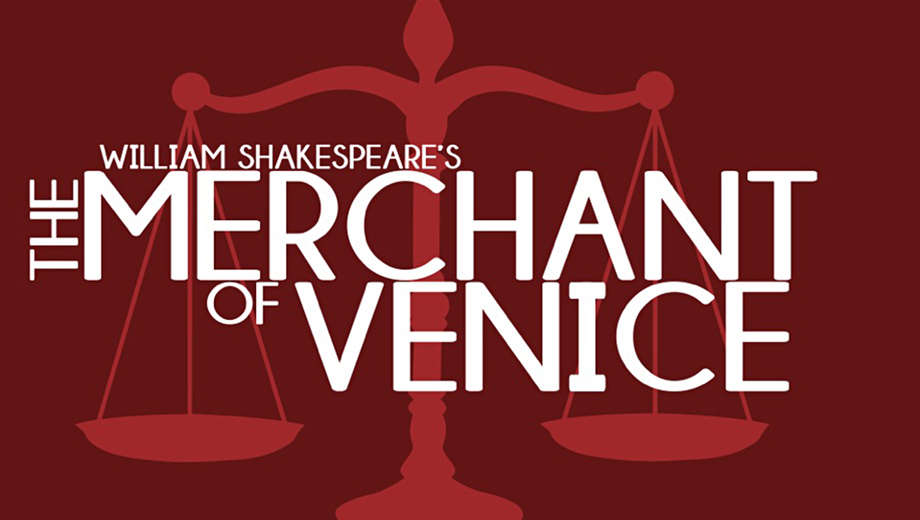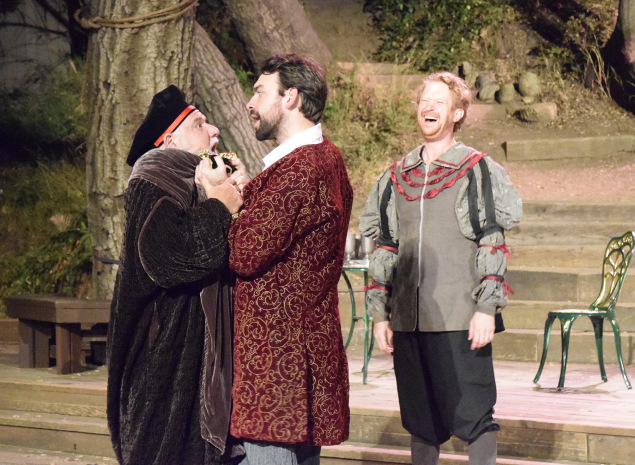Take a beautiful outdoor setting, terrific acting, and a comedy/drama by William Shakespeare, and what do you have? A late season treat at Theatricum Botanicum with the artfully staged, politically potent The Merchant of Venice.
The theater itself is always an experience, and it fits the play perfectly here, the outdoor setting perhaps not that dissimilar to theaters of Shakespeare’s time. Certainly viewing a stellar performance such as this in such an intimate and outdoor setting enhances the play’s power.
It’s worth noting that in this political climate, the topic of anti-semitism, a key element of the play, is certainly worth examining. If Shakespeare did so with an unflinching eye then so can we.
With intensely quotable lines, and enough twists and turns to be a telenovela, The Merchant of Venice may be most memorable for the controversy it continues to stir in its characterization of Shylock, the Jewish money lender.
Alan Blumenfeld makes a compelling Shylock, one whose demand for a pound of flesh from a defaulting merchant debtor is grounded in his own desire for vengeance, retaliation at least in part for the prejudice and humiliation he experiences from Christians. An added opening scene actually reveals Shylock being mocked by others in the community, creating a nice little backstory to his reprehensible demand for payment in the flesh. In short, Blumenfeld makes Shylock as sympathetic as possible, particularly in regard to his poignant relationship to his daughter.
So where’s the comedy mined from? Besides the clown Launcelot, there’s a musical addition to this production in a riff on the discouragement of unwanted would-be suitors, and of course, artfully woven in the dialog are a variety of pithy Shakespearean comebacks. But this is a dark comedy indeed, particularly when one considers the role of Portia, played here by Willow Geer. Disguised as a lawyer, she succeeds in getting the debtor merchant off the hook, but she also utterly humiliates Shylock, taking away his property and very identity.
With Shakespeare himself unable to comment, there is no way to determine if the anti-semitism depicted were something he agreed with or denounced. But perhaps that begs the question – is the play timely? Does it still present a raw truth, however we wish to ignore it? Is the pound of flesh to be exacted justifiable in the face of continued abuse? Just the fact that these questions come up make the play itself one valuable viewing experience these days. And an entertaining one.
Take in the production through October 1st in the perfect sylvan setting of the Botanicum.
- Genie Davis; photos provided by the theater






